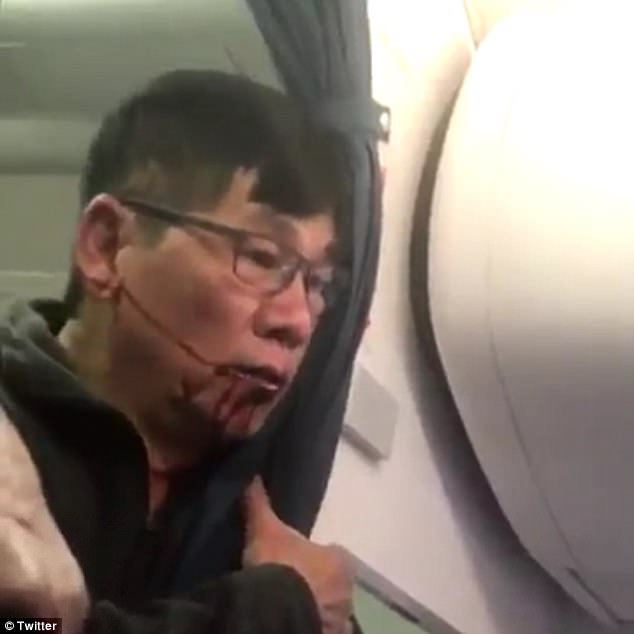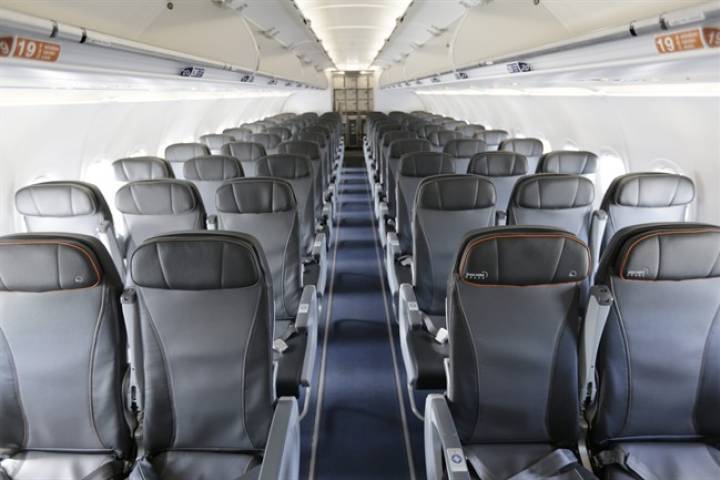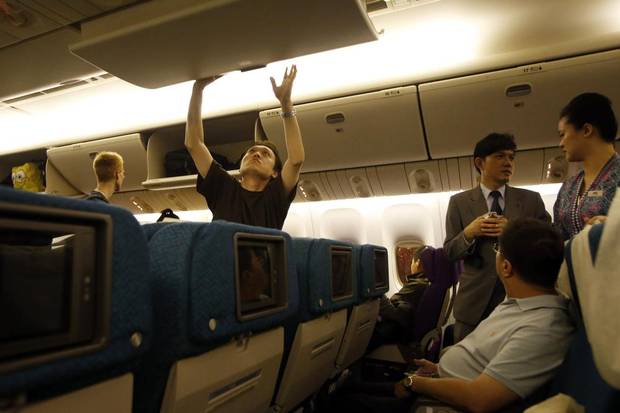Why Do Airlines Overbook Their Flights?
About 50,000 people with valid tickets are bumped off flights every year due to overbooking.
The United Airlines incident which saw an elderly man being dragged off a United Airlines flight has opened up a conversation on overbooking
On Sunday evening, a 69-year-old American man named Dr David Dao, was violently dragged out of an overbooked United Airlines Kentucky-bound flight. The man could be heard screaming and bleeding from the forced removal in footages of the incident that have gone viral.
The incident happened after the airline appealed for four volunteers to give up their seats for USD800, accommodation for an overnight stay and a flight to same destination the next day.
According to USA Today, a United spokesperson told them that the airline made the decision to reaccommodate passengers as they needed to accommodate crew members that were expected to be in Louisville the following day.
The passengers were apparently told that the people who were bumped were chosen at random. Out of the four, three passengers had agreed to leave with the compensation, but Dr Dao had refused. One of the videos from the incident shows the doctor looking calm (contrary to how United Airlines described he was) and asked, "Why did you choose me?".
He was not given an answer by the airline officials, which lead him to say, "Talk to my lawyer". Aviation officers were called in to forcibly remove Dr Dao following that exchange. He screamed in protest, sustained injuries from the incident and is currently receiving treatment at a hospital in Chicago.
So, what is overbooking? Is it legal for airlines to do that?
While the ethics behind it have been questioned, rest assured that overbooking is legal and commonly practiced by most airlines. It is defined as the practice of selling or booking more than an organisation or business' full capacity.
Why do airlines sell seats beyond their capacity?
Financial Times (FT) spoke to aviation expert John Strickland, who explained that the commercial reason for this is to ensure that they fill up the plane as much as possible.
"It's normally a highly sophisticated process based on extensive statistical analysis," said Strickland.
Airlines do it because it is statistically possible that not all passengers who had bought their tickets will show up based on common reasons such as changes in travel plans and missed flights. It was reported that European Union documents state that the statistical chance of all passengers with a valid ticket checking in on time is less than one in 10,000.
A TED-Ed video titled, 'Why do airlines sell too many tickets?' by Nina Klietsch, says that businesses overbook because it increases profits and allows them to optimise their resources. About 50,000 people with valid tickets are bumped off flights every year due to overbooking.
The figure may seem large but FT says that it is still relatively small. According to America's Bureau of Transportation Statistics, the number of people denied boarding (both voluntary and involuntary) in 1999 was 1.07 million. The number declined to 552,000 in 2015 and that only makes up 0.09% of trips taken by passengers in the US.
Airways senior business analyst, Vinay Bhaskara, told Business Insider that airlines decide on the number of tickets to oversell using an algorithm that calculates the percentage of expected no-shows
"On the vast majority of flights that are full, and even when a flight is booked partially empty, there is always going to be some percentage of passengers that are no-shows."
"So the airline has a situation where the minute that flight takes off, those empty seats that were sold to passengers, but are empty, are a lost revenue opportunity," explained Bhaskara.
Airlines usually predict the probability of no-shows by weighing in factors such as traffic, connecting flights, weather, and time. Bhaskara gave an example of how this method works.
"So if the Atlanta to New York route sees 15 no-shows on average per flight, then over the course of the year, the next they will basically put in 15 extra seats. So they do it based on the data of how passengers behave on that specific route," he said.
How do airlines decide which passenger gets bumped?
Based on an article by Travel + Leisure, each airline would usually have its own policies on who gets kicked off a flight should there be an overbooking situation.
Typically they would look for volunteers who are willing to give up their seats for compensations first. Failing which, some carriers would start bumping passengers who checked in last or from the lowest fare class.
Airlines would usually make the decision after taking into consideration factors such as the passenger's frequent flyer status, the layout of the person's itinerary to check if the passenger has a connecting flight, the fare class of the ticket and when he or she checked into the flight.
So, passengers who have higher frequent flyer status, checked in early, have first or business class tickets are less likely to be bumped on an overbooked flight.
However, most airlines will not bump passengers with disabilities, unaccompanied minors, those whose trips would be severely delayed due to the bumping, or the ones in elite loyalty-club status.
Now, the question is - what can you do if you get bumped from a flight? What are you entitled to?
According to the Malaysian Aviation Commission, when a flight is overbooked, an airline can only deny you boarding if:
1. You voluntarily give up your ticket
2. There aren't enough volunteers to meet the airline's circumstances
Note that whether or not you have voluntarily or been involuntarily denied boarding, the airline must offer you compensation for it in accordance with the Malaysian Aviation Consumer Protection Code 2016 (MACPC). The type of compensation usually depends on the situation but it must include:
1. Meals, limited telephone calls and internet access (where available)
2. Accommodation and transport (should the time of the next flight require an overnight stay, transport between the airport and the hotel)
3. The choice between a full refund of the unused flight ticket within 30 days or a replacement flight at the earliest opportunity.
"You are entitled to all these rights whether you're flying to or from any location in Malaysia, irrespective of local or foreign airlines."
Here's a list of a few popular airlines that operate in Malaysia and their policies on overbooking:
AirAsia:
If a flight has been overbooked, here’s what you’re entitled to based on their terms and conditions:
1. Carry you at the earliest opportunity on another of our scheduled services on which space is available without additional charge and, where necessary, extend the validity of your booking; or
2. Should you choose to travel at another time, retain the value of your fare in a credit account for your future travel provided that you must re-book within three months therefrom.
Malaysia Airlines:
If there is a situation where there are insufficient passengers willing to give up their seats voluntarily, other passengers will be denied boarding involuntarily on a Malaysia Airlines flight based on their terms and conditions.
Affected passengers will generally be rebooked or rerouted to their final destinations of the ticket presented at check-in by the first available flights in accordance with their policy.
Malindo Air:
"In the event of overbooking, Malindo Air will make every effort to provide seats for which confirmed reservation have been made, however, no absolute guarantee of seats availability is denoted by the expression reservations, bookings, status OK (ticketed and confirmed) or HK (held confirmed - reservation but not ticketed), and the timings attached to them," read Malindo's term and conditions section on overbooking.
Singapore Airlines:
In case a Singapore Airlines (SIA) flight is overbooked, they will not deny any of the passengers a seat until after the airline personnel asks for volunteers willing to give up their seats in exchange for a payment of the airline’s choosing.
Only if there are not enough volunteers, the airline will deny boarding to certain passengers based on their's particular boarding priority.
"With few exceptions, persons denied boarding involuntarily are entitled to compensation."



